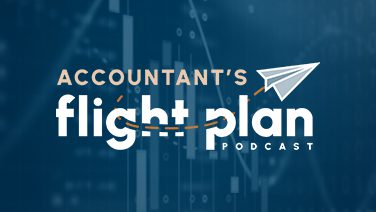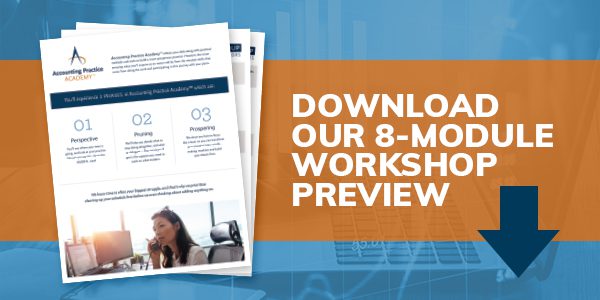In the overwhelming majority of cases, owners of profitable accounting practices can get all cash or all cash equivalent terms at closing-with absolutely no contingencies after closing. In this segment, we will discuss financing for accounting practices.
First, some Key Statistics from our deal flow last year:
• 75.33 % of total selling price was paid in cash at closing.
• 38.9% of our deals were closed with 100% cash at close.
Please note that these statistics include all of our transactions. It’s also worth noting that some sellers actually prefer seller-financing, while other practices have certain risks or challenges that can make a larger portion of seller-financing necessary. Generally speaking, deals over $ 500,000 will have a small percentage of seller-financing because of bank underwriting requirements.
There are banks and then there are banks.
Not all banks fully understand accounting practice acquisitions. More often than not, local banks just do not do a good job underwriting goodwill deals. The main obstacle we’ve seen is that when a bank has not done a fair number of these transactions, (sometimes they have not done any) they do not understand the low-risk nature of these loans. As a result, they generally require significant collateral. A collateralized loan may be fine, maybe even preferable, for a buyer who is in an exceptionally good financial position. Most buyers however, are better served by going to a bank with a successful track-record with accounting practice acquisition financing. As lenders experienced with these deals know, CPA’s with good professional experience and a history of using credit wisely have a very high success rate with acquisitions of CPA firms. As long as the practice has a good financial history to go along with a good buyer, financing is readily available. From the bank’s perspective, these loans are an excellent credit-risk.
Banks will typically offer much lengthier loan terms than sellers are willing to accept.
Ten year bank financing is common and very few sellers will want to carry a note for that long. Bank financing can offer the buyer stronger cash-flow which makes most people more comfortable when starting-out. Many of these acquisition loans do get re-financed a few years after the purchase. Once a buyer has been in the practice for a few years, and has had time to establish a track-record with the practice, he or she may find many more loan-options.
(If you would like to know more about our compiled statistics for deal structure for our 2013 deal flow, please email us at info@poegroupadvisors.com with your contact information. Please type “deal flow” in the subject line.
Check out our podcast series on our resources tab.
Buying or listing a CPA firm? We assist both parties in planning and implementing a strategic, successful transition of clients and staff.
About Brannon Poe: Brannon is the founder of Poe Group Advisors and has been facilitating successful accounting practice transitions throughout the US and Canada since 2003. He is also the creator of Accounting Practice Academy. Brannon is the author of the Accounting Practice Insights Blog and hosts the Accountant’s Flight Plan” podcast with other top thought-leaders in the accounting profession. Brannon is an E&Y alumnus. He has worked with some of the most successful and seasoned CPAs in the industry and has been privy to the behind-the-scenes methods that these clients have used to build highly profitable practices along with capable and independent teams. Brannon has authored multiple books, including Accountant’s Flight Plan – Best Practices for Today’s Firms (published by both the AICPA and CPA Canada) and On Your Own: How to Start Your Own CPA Firm, Second Edition (published by the AICPA). Brannon is passionate about entrepreneurship and is the president-elect of EO Charleston (Entrepreneur’s Organization)






